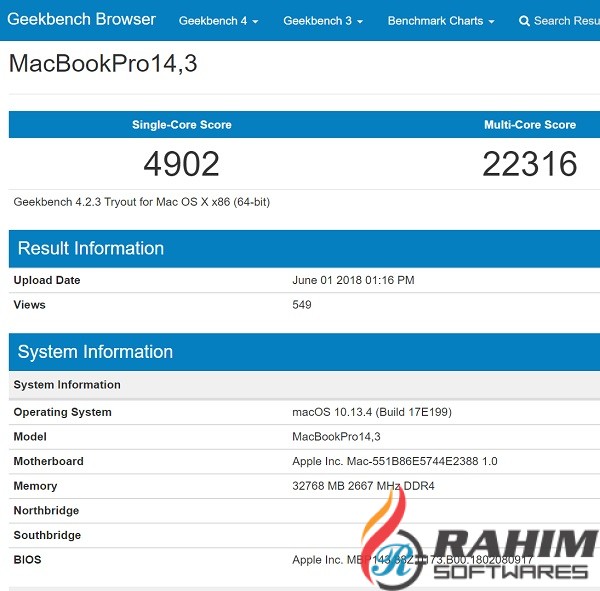
These scores are averaged together to determine an overall, or Geekbench, score for the system. Geekbench 3 ScoresĮach workload's performance is compared against a baseline to determine a score.
Geekbench 3 for pc software#
Software working with large amounts of data (e.g., digital content creation) relies on good memory bandwidth performance to keep the processor busy.Ī complete description of the individual Geekbench workloads can be found on the Primate Labs website. Geekbench 3 uses tests based on the STREAM benchmarks developed by John D. Memory performance: Memory workloads measure memory bandwidth. While almost all software makes use of floating point instructions, floating point performance is especially important in video games, digital content creation, and high-performance computing applications. All software makes heavy use of integer instructions, meaning a high integer score indicates good overall performance.įloating point performance: Floating point workloads measure floating point performance by performing a variety of processor-intensive tasks that make heavy use of floating-point operations.

Integer performance: Integer workloads measure the integer instruction performance of your computer by performing processor-intensive tasks that make heavy use of integer instructions. The workloads are divided into three different sections: Geekbench 3 uses a number of different tests, or workloads, to measure performance.

Higher scores are better, with double the score indicating double the performance. Geekbench 3 scores are calibrated using a Mac mini (Mid 2011) with an Intel Core i5-2520M 2.50 GHz processor as a baseline with a score of 2,500 points.


 0 kommentar(er)
0 kommentar(er)
